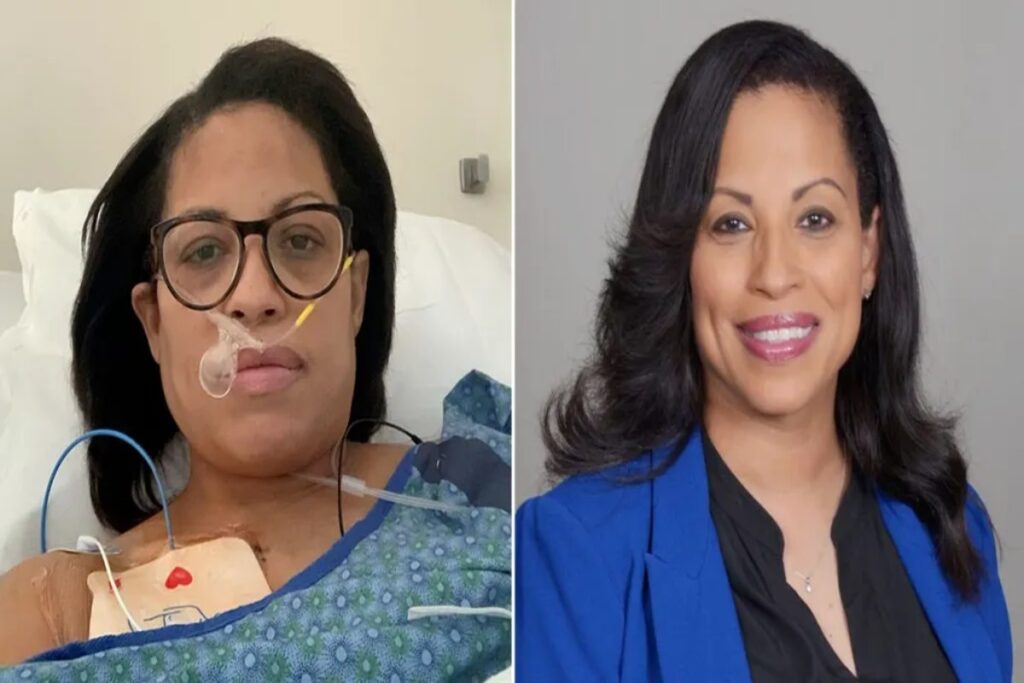In 2020, Cheryl Jordan Winston, a 48-year-old from Minnesota, faced a life-altering moment when sudden cardiac arrest struck her in the bedroom. Without warning, Winston collapsed, and her heart stopped beating.
Racing against time, her husband administered CPR until paramedics reached the scene. Using an automated external defibrillator (AED), the paramedics shocked and revived her after 25 minutes without a pulse.
Transported to the hospital, Winston was in a coma, a critical phase that lasted for two weeks. Recounting the scary experience, she informed Fox News Digital in an interview, “Despite being without a pulse for 25 minutes, I have no long-term side effects. I have been able to return to normal life.”
Before the sudden cardiac arrest (SCA), Winston was asymptomatic—no fatigue, no chest pain. It later became clear to her that the absence of symptoms leading to such a cardiac event was common.
ALSO READ: Police Arrest 23-Year-Old Woman in Connection With Subway Attack on Cellist
Speaking on her health history, she said, “I’ve never had any previous heart issues. Although there is a family history of high blood pressure, there was nothing unusual in my family that could be linked to sudden cardiac arrest.”
As a global clinical study participant, Winston underwent the implantation of Medtronic Aurora EV-ICD, an implanted cardioverter defibrillator. This cutting-edge device averts potential life-threatening episodes in the future.
Elaborating on its functionality, she said, “It monitors my heart. If it sees an arrhythmia, it will provide therapy to return my heart rhythm to normal before a cardiac arrest. I feel it’s added protection for me since they never found a cause for my cardiac arrest.”
Remarkably, within two weeks, Winston resumed her work and everyday activities. She further shared with Fox News Digital, “I am feeling great. I make it a point to continue exercising regularly and focus on eating a healthy diet.”
Dr Alan Cheng, the Chief Medical Officer of Medtronic’s cardiac rhythm management division in Minneapolis, emphasized the crucial nature of cardiac arrest. He noted that it frequently arises from a dangerously rapid heart rhythm and can prove fatal without immediate intervention.
He also explained to Fox News Digital, “For patients at risk of developing these abnormal rhythms or who have already suffered cardiac arrest, we implant a stopwatch-sized defibrillator. They monitor the heart’s rhythms 24×7. And they deliver a high-energy shock or low-energy, nearly undetectable, pacing pulses to restore the heart to a normal rhythm.”
Dr. Alan Cheng highlighted the history of implantable cardioverter defibrillators (ICDs), which have been used for over 40 years. However, he mentioned the version received by Winston is a modern design. Traditionally, they place ICDs in the upper chest, with slender wires known as leads threaded through the veins into the heart.
While effective in saving lives, the approach has potential complications associated with leads inside the heart. According to Dr. Mustali Dohadwala, the Medical Director at Heartsafe Boston, SCA is a prevalent issue. Moreover, it could contribute to approximately 15% of overall fatalities. Notably, Dr. Dohadwala was not a part of Winston’s care.
You Might Also Like:
Busta Rhymes Abruptly Cancels Entire 2024 “Blockbusta Tour” Dates Days Before Kickoff
5 Must-Watch Netflix Movies and Shows This Week (March 4-10)
Channing Tatum and Zoë Kravitz Radiate Love After Engagement, Sources Say
Missouri Christian Boys Boarding School Owners Arrested and Charged With Kidnapping
